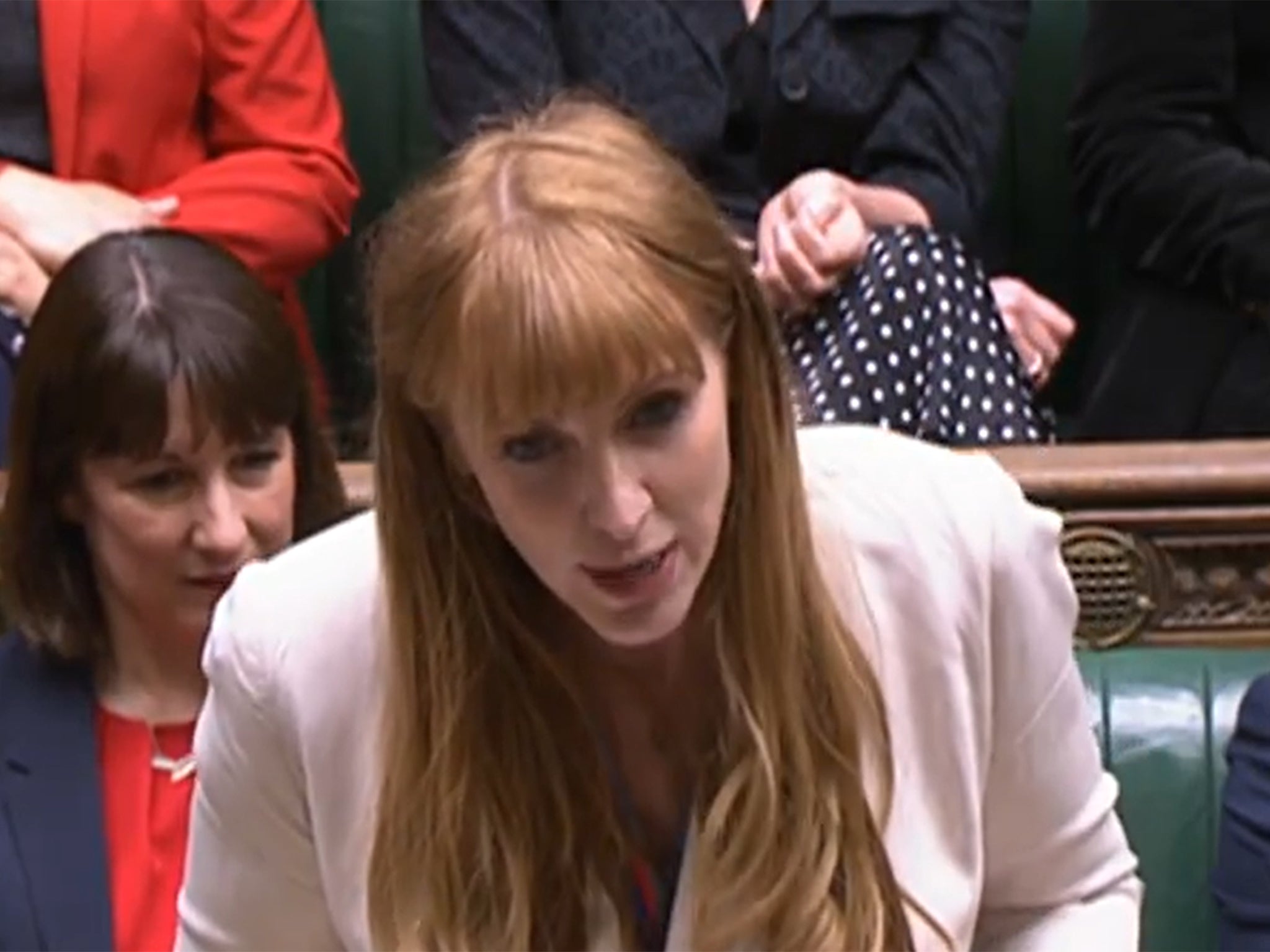Angela Rayner should have gone into the Commons with no notes at all
The deputy Labour leader could have beaten Oliver Dowden hands down if she hadn’t wasted time reading out long questions, writes John Rentoul


Angela Rayner, the deputy Labour leader, could have marmalised Oliver Dowden, Rishi Sunak’s substitute, at Prime Minister’s Questions today. But she and her minders don’t have quite enough confidence in her street-fighting ability to send her into combat without the security of long written questions to read out.
They are right to respect the threat from Dowden, whose mild exterior conceals a sharp political mind that has prepared five prime ministers for questions. But he is not Rayner’s equal out of the backroom.
All the same, he had some effective lines. He said that Rayner would not be Keir Starmer’s choice as deputy prime minister – Starmer would prefer the Lib Dem leader, Sir Ed Davey.
That was an interesting jibe. You could see that Rayner was uncomfortable with where Dowden was heading, possibly wondering if he were going to suggest that Starmer would rather have Rachel Reeves, the shadow chancellor sitting next to her, as his deputy. She laughed, maybe in relief, when the deputy prime minister got to the punchline. Making fun of Starmer’s refusal to answer questions about a coalition with the Liberal Democrats is just standard knockabout, whereas a pointed reference to shadow cabinet tensions might have had her wondering if Dowden knew something she didn’t.
She may also have been pleased to notice that Dowden’s answer assumed that Labour would be forming a government after the next election. By the time Dowden got to his soundbite for the headlines, calling Starmer and Rayner the “Phil and Holly of British politics”, the danger had passed.
She would easily have had the better of their exchanges if she hadn’t read out such long questions. Her second went on for two-and-a-half minutes, after which she lost track of its opening thought, which was a promising one about Tory speakers at the National Conservatism conference sounding as if the party is starting to prepare for opposition, and ended without actually asking a question at all.
When she did ask questions, they were pointed and Dowden’s answers were feeble. She asked whether NHS waiting lists had gone up or down since the prime minister promised to cut them in January.
Dowden weakly blamed the pandemic and said that the difference between the government and the opposition was that “we’ve got a plan” to fix the NHS. Rayner was having none of it: “Even before the pandemic, waiting lists were going up.” She asked the question again, but wasted it by reading out a personal comment about Sunak having a private GP, which he doesn’t any more, and citing the travails of Carol, a constituent of hers.
Even so, Dowden managed to make a hash of his next answer, demanding to know why, if Rayner cared so much, “she is opposing our minimum service levels”, to protect people from strike action by her “union paymasters”.
Rayner pounced. “We all want minimum service levels,” she said. “It’s this government that hasn’t provided minimum service levels.” If we had had six rounds of that, with Rayner picking up Dowden’s weak responses and wrapping them round his neck, there wouldn’t have been much of the deputy prime minister left.
Instead she read out another question about child poverty. Dowden gave a prepared answer to a different question: “This comprehensive schoolboy is not going to take any lectures from the party opposite about the lives of working people.” It was a tone-deaf answer, using “working people” as code for “working class” and assuming that comprehensive schools are for only the working classes – not to mention the implication that child poverty is an exclusively working-class phenomenon.
It was an over-prepared answer, modelled on what is supposed to have been one of the great putdowns of PMQs history, when Michael Howard said to Tony Blair 20 years ago: “This grammar-school boy is not going to take any lessons from that public school boy on the importance of children from less privileged backgrounds gaining access to university.”
The only trouble with that was that Howard sent his son to Eton, whereas Blair sent his children to comprehensive schools.
And the trouble with Dowden’s version is that it contrasts awkwardly with the prime minister, who went to Winchester and whose daughters go to private schools. It was not even an answer to a question about child poverty, to which Dowden went on to respond by quoting misleading figures about absolute poverty rather than the accepted definition of the word.
If only Rayner had left her notes behind and argued with the soundbite machine in front of her, she would have won hands down.
Join our commenting forum
Join thought-provoking conversations, follow other Independent readers and see their replies
Comments
Bookmark popover
Removed from bookmarks